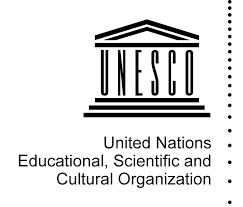Application Deadline: July 30, 2020
Youth are major beneficiaries and partners for the implementation and monitoring of the 2030 Agenda for Sustainable Development. SDG 6 ‘ensure access to water and sanitation for all’ is a strategic goal, especially for the African continent because of its connection to other goals and the dependency of many industries on water. Therefore, Water Security and youth engagement are fundamental for the achievement of the SDGs and the Africa we want.
‘Agenda 2063: The Africa We Want’, is a blueprint for transforming Africa’s future. It also identifies programmes that will contribute to economic growth and development of the continent. Water Security is one of Priority Areas for the First Ten Years of Agenda 2063 and youth is a part of its aspiration for, ‘An Africa Whose Development is people driven, relying on the potential offered by African People Engaged’. Youth engagement and water security are important features of the SDGs and agenda 2063.
UNESCO is devoted to engaging with youth as leaders, knowledge-holders and innovators in the Water Sector. One of the main ways of engaging with youth and young water professionals in the water sector is by encouraging them to become more involved in Research, Development and Innovation, that address Water Security issues. Within the context of Africa Water Week, UNESCO is in touch with several international journals about publishing the printed and online version of a special issue that will focus on the importance of Water Security and youth engagement in Africa.
The main objectives of this activity includes to; improve the visibility of the scientific contribution of youth that address water related challenges in Africa, contribute to the advance of and address knowledge gaps on water security issues in Africa with a focus on the experience of youth and young professionals and to inspire youth to become more involved in the co-production and application of knowledge.
Submission guidelines
Recommended Format for Extended Abstract
The recommended format for extended abstracts is noted below.
i. Introduction: State the problem/research question that is being addressed, scope, originality, rationale, overarching aim or objective of the research paper (150-250 words):
ii. Literature Review: theoretical background and discussions; fundamental concepts, findings of the recent studies, hypothesis and/or model development-if any, etc.) (250-500 words):
iii. Methodology: Explanation of how the research was conducted, data collection and analysis methods utilized in this study (100-200 words):
iv. Findings & Conclusion: The main results/ findings includes presentation of data and outcomes of research; Conclusion includes analysis of the relevance of results (100- 250 words)
v. References (15-30 references)
vi. Disclosures: Funding sources, acknowledgements and possible conflicts of interests should be declared
vii. APPENDICES
viii. Tables and graphs: can be submitted with abstracts as an attached image or document. Allowed formats are jpeg and pdf. Please remember to label and provide references (e.g. Table 1, Figure 1, etc.) in the abstract where possible.
ix. Keywords (three-eight key terms)
x. Extended Abstracts should be submitted in PDF.
xi. Abbreviations should be defined.
c. Word Limit
The following word limits will apply:
Title: (3-15 words)
Body of the Abstract: (500-1000 words, single space with no more than 3 pages) (references not included)
For More Information:
Visit the Official Webpage of the UNESCO Youth and Water Security in Africa

